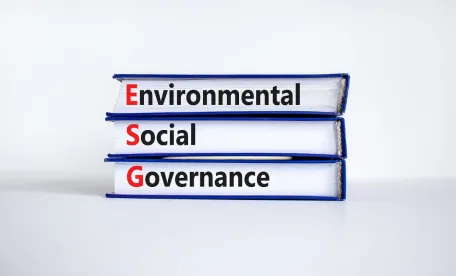Today's WSJ article labels ESG as the latest dirty word in corporate America. Setting aside that ESG is an acronym (Environmental, Social, Governance), and not a word, it seems a bit hyperbolic to cast the entire movement aside as a victim of political extremism. ESG as a concept simply does not belong in George Carlin's original list of seven dirty words, which far preceded the ordinary profanity of our streaming world. But the article does raise some valid points for corporate leaders to consider.
For those unfamiliar with ESG, the acronym denotes a corporate focus which aligns the mission of a business with employee, shareholder and consumer demands. Those demands have evolved in response to various societal concerns and developments (climate threats, inequality and racial barriers and errant corporate oversight). The backlash against ESG - perhaps driven by political fringeism – does not justify or warrant disguising corporate mission alignment with more palatable descriptions ("corporate responsibility" or “responsible business”). In fact, disguising these efforts plays right into the hands of ESG detractors, who are quick to charge corporate leaders with a lack of transparency in carrying out the corporate mission (which usually, but does not always, requires creating value for shareholders).
So where does this leave ESG in the context of goal-setting in a divisive political environment? Dirty acronym or not, the fundamental policies and purpose behind ESG remain the same: boards are responsible for supervising and setting the strategy for corporate leaders who must carry out the board-set business objectives. Boards are free, of course, to ignore the landscape in which the business operates, the consumers the business serves and the needs of the individuals the business hires. But ignoring those realities is dangerous if it comes at the expense of the shareholders or contrary to their direction. It is hard to fathom how realistically operating a business to meet shareholder interests could be objectionable, let alone profane. The conclusion seems pretty simple: label or not, ESG is here to stay if the shareholders demand it.
When Thomas Buberl, CEO of Paris-based insurer AXA, met in the U.S. last year with the leaders of an asset manager, a fertilizer maker and a tech company, executives suggested that he reflect the newfound caution. “I used the abbreviation ESG, and people taught me not to use that word,” Buberl said. “I said, ‘What do you want me to call it?’”
Few people had a ready answer. Buberl said the importance of environmental efforts and other goals shouldn’t be underplayed. “We need to move from intentions to actions,” he said.
https://www.wsj.com/business/the-latest-dirty-word-in-corporate-america-esg-9c776003?mod




 />i
/>i
